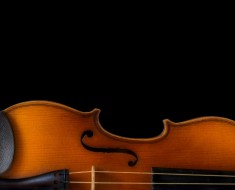For twenty years Victor de Sabata was the chief conductor of La Scala, Milan and towards the end of his time there he brought the orchestra, chorus and company to London. I think it was in 1950. This was their first visit to the U.K. since the war and as I remember they performed several operas at Covent Garden. They also gave a performance of Verdi’s Requiem in the Royal Albert Hall. I was there. I cannot be sure who the soloists were, apart from the baritone, Paolo Silveri. I think the soprano was probably Maria Caniglia, near to the end of her career and there was a new tenor on the scene whose name I forget, and possibly Ebe Stignani was the contralto. It was a long time ago! De Sabata recorded the work the following year with Rebata Tebaldi singing the soprano part.
Two visual memories I have about the performance. The first was de Sabata himself, an erect noble figure like some re-born Roman senator, with the eye of an eagle. He had the reputation of being a dramatic conductor and this was borne out by the electric effect he had on both performers and audience.
There was a climatic moment (it must have been in the final Dies Irae with its enormous thwacks on the bass drum), when he stooped down almost to a kneeling position and then rose wildly and majestically, embracing the artists and the music with his arms in an avalanche of sound. The second memory I have is that all the members of the orchestra (all of them men in those days) had frilly dress shirts and white ties, an elegance and flair in contrast to the more soberly dressed players that I was used to.
De Sabata made several recordings although apparently he disliked and felt confined by studio conditions. The most famous of these must surely be the recording of Puccini’s Tosca which I referred to earlier, with Maria Callas in the title role, and the immensely evil and lecherous Scarpia of Tito Gobbi, and Guiseppe de Stefano, a great favourite of mine, singing Cavaradossi.
Here again the orchestra and chorus were those of La Scala, and of the several versions, probably the Naxos recording has the best sound. The prototypical Italian opera performed by artists who have it in their blood. Nothing could be better.
B.R.



